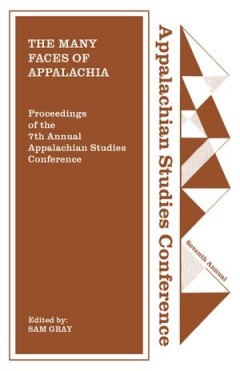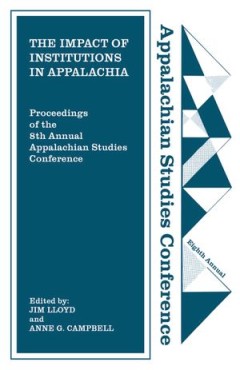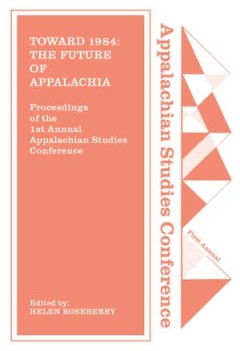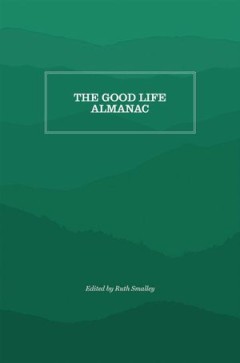Filter by

Western North Carolina Since the Civil War
No region has undergone more dramatic changes in the last century than Western North Carolina. Published in 1973, Western North Carolina Since the Civil War takes a look at mountain people in Western North Carolina and their uniquely structured economic, political, social, and cultural systems. The Van Noppens specifically explore different qualities of the mountain people such as their institu…
- Edition
- -
- ISBN/ISSN
- 9781469638331
- Collation
- -
- Series Title
- -
- Call Number
- 306.4 NOP w

Rhetorics of Nordic democracy
Democracy is today a concept that is overwhelmingly positively evaluated almost everywhere. A lot has been written about socio-economic and cultural backgrounds of democratic regimes as well as their institutional settings. By contrast, not much is known about the political manoeuvres and speech acts by which 'democracy' has been tied to particular regions and cultures in concrete historical si…
- Edition
- -
- ISBN/ISSN
- 9789522222282
- Collation
- -
- Series Title
- -
- Call Number
- 321.8 RHE r

Moving in the USSR
This book deals with 20th century resettlements in the western areas of the former USSR, in particular the territory of Karelia that was ceded by Finland in the WWII, Podolia in the Ukraine, and the North-West periphery of Russia in the Kola peninsula. Finns from Karelia emigrated to Finland, most of the Jews of Podolia were exterminated by Nazi Germany but the survivors later emigrated to Isra…
- Edition
- -
- ISBN/ISSN
- -
- Collation
- -
- Series Title
- -
- Call Number
- 301

The Many Faces of Appalachia
This volume of the Proceedings of the 7th Annual Appalachian Studies Conference, held in 1985 at Unicoi State Park in Helen, Georgia, offers a look at diversity and Appalachian identity.
- Edition
- -
- ISBN/ISSN
- 9781469636863
- Collation
- -
- Series Title
- -
- Call Number
- 306.4 GRA m

The Impact of Institutions in Appalachia
This volume of the Proceedings of the 8th Annual Appalachian Studies Conference, held in 1986 in Berea, Kentucky, offers a sampling of papers presented at the conference. Paper topics include religion; government and technology; capitalism and coal; regional photographers; sports and play in Southern Appalachia; education; cultural and diversity issues; and history and politics.
- Edition
- -
- ISBN/ISSN
- 9781469636894
- Collation
- -
- Series Title
- -
- Call Number
- 306.4 CAM i

The Future of Appalachia
Though titled the Proceedings of the 1st Annual Appalachian Studies Conference, this volume contains the speeches and papers of the Southern Appalachian Regional Conference held May 13-16, 1974 at the Center for Continuing Education at Appalachian State University. Governor James E. Holshouser, Jr. of North Carolina; John B. Howard, American Petroleum Institute; and Cratis Williams, Acting Vice…
- Edition
- -
- ISBN/ISSN
- 9781469636764
- Collation
- -
- Series Title
- -
- Call Number
- 306.4

Migrants and Literature in Finland and Sweden
Migrants and Literature in Finland and Sweden presents new comparative perspectives on transnational literary studies. This collection provides a contribution to the production of new narratives of the nation. The focus of the contributions is contemporary fiction relating to experiences of migration. The volume discusses multicultural writing, emerging modes of writing and generic innovations.…
- Edition
- -
- ISBN/ISSN
- 9789518580358
- Collation
- -
- Series Title
- -
- Call Number
- 572.9 RAN m

Memories of My Town
Memories of My Town is an exploration into how town dwellers experience their environment in a complicated way. As people in urban milieus relate themselves to the environment, this takes place on many levels, where especially the time level becomes problematic. The urban buildings and settings can be looked upon as a kind of collective history, as carriers or witnesses of times past. But it is…
- Edition
- -
- ISBN/ISSN
- 9789518580198
- Collation
- -
- Series Title
- -
- Call Number
- 301 RIZ m

The Limits of Patriarchy: How Female Networks of Pilfering and Gossip Sparked…
In the mid-19th century, letters to newspapers in Finland began to condemn a practice known as home thievery, in which farm mistresses pilfered goods from their farms to sell behind the farm master’s back. Why did farm mistresses engage home thievery and why were writers so harsh in their disapproval of it? Why did many men in their letters nonetheless sympathize with women’s pilfering? Wha…
- Edition
- -
- ISBN/ISSN
- 9789522223272
- Collation
- -
- Series Title
- -
- Call Number
- 909.81 STA l

The Good Life Almanac
Published in 1975, this is an almanac of stories gathered from the Solway, Tennessee community as a microcosm of the Appalachian region during a period of transition. Written to showcase the stories and folklore passed on in the mountains, the tales chosen are typical of the nineteenth century. Stories talk about the dependence on water transportation, the excitement of the coming railroad, the…
- Edition
- -
- ISBN/ISSN
- 9781469638423
- Collation
- -
- Series Title
- -
- Call Number
- 808.84 SMA g
 Computer Science, Information & General Works
Computer Science, Information & General Works  Philosophy & Psychology
Philosophy & Psychology  Religion
Religion  Social Sciences
Social Sciences  Language
Language  Pure Science
Pure Science  Applied Sciences
Applied Sciences  Art & Recreation
Art & Recreation  Literature
Literature  History & Geography
History & Geography